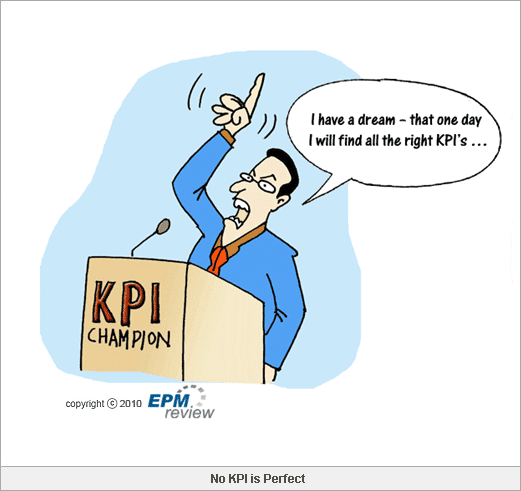Level343 has always been a “practice what you preach” kind of company. So it shouldn’t be any surprise that I’ve been doing a lot of outreach with other bloggers and companies. The joy of being an international marketing company, however, is that we can do international outreach.
The bonus of international outreach is that it allows me to speak languages I wouldn’t otherwise have the opportunity to speak on a daily basis in the U.S. The drawback is that the programs, blogs and interviews don’t make it into the U.S without some help and translation.
Recently, I was asked to interview with SEMrushItalia. There was a great turn out; the questions were excellent, I thought, and the audience even asked some good ones. –But, I realized much of my U.S. audience didn’t get to hear it, since the recording was in Italian.
Having said that, I thought it’d be a good idea to translate them to English. Maybe there are some nuggets of wisdom, and I hope you find it as helpful as the SEMrushItalia audience did!
1: Which 3 questions should I ask myself before defining the KPI for my business’ website?
KPI depends on what purpose your website serves, so that’s the first question: What do I expect my website to do?
For example, is your website for lead generation? Or do you actually sell products on your site? Do you have people contact you via the website, or do you offer a telephone number only? So your first KPI should be “how many x?”
- How many leads per month
- How many products (or how much revenue) per month
- How many phone calls per month
- How many reservations per month
The next question is: What metrics will indicate how well or how little x is performing?
For example, if lead generation is your top KPI, what metrics can you use to find out how well your site is generating leads – above and beyond the number that come in? Knowing that your site gave you five leads is all well and good, but do you know why you got the five leads? You might think it’s because your site isn’t performing well, when it could be that all five visitors converted – i.e. 100% conversion, but no notability.
With this in mind, other metrics might be:
- How much overall traffic per month
- How much organic (or paid, if you’re using ppc) traffic per month
- Bounce rate
- Average time on site
Another question is about growth: how well is knowledge of your site growing?
For example, are people coming from social networks to visit your site and, if so, how many over the previous month? If you’re using an email campaign, is it bringing in traffic? Is your search reach getting bigger – more targeted terms, higher ranking terms?
These growth metrics might include:
- Social network traffic (and which networks)
- Traffic from emails
- # of targeted, ranking terms
- % of new vs return visitors
Finally, how are you going to get “x”?
For example, are you going to create more content? Are you going to make videos? Are you buying ads? The efforts you’re going to use to accomplish x (the purpose of the website) will decide your final set of KPIs. You might track video views in how they’ve increased traffic to your site. KPIs could be how a set of articles around a single topic performed in terms of increased return visitors.
Here, the metrics are so varied, but they answer the question, “What are my tactics and how well are they accomplishing my goal?”
2. There are metrics that everyone goes crazy about but are completely useless to track. Which, in your opinion, are the most overrated and underrated performance indicators?
I don’t know if “everyone” goes crazy about it, but there’s one metric that keeps coming back again over and over like a broken record: Page Rank. Not to be confused with how a term ranks in the search results, Page Rank is a superficial number – NOT a “key” performance indicator.
As for an underrated metric, I’d have to say return visits compared to overall traffic. So many focus on how much traffic they’re getting, as if “traffic” is the main goal. -And maybe overall traffic is a helpful metric if you just want to know people are coming to your site, or if you only have one product to sell, and you only want to sell it once, but that’s seldom the case.
For the most part, businesses need staying power. They want advocates; they want cheerleaders. They want buyers, and they want those buyers to come back and buy more.
So, while you always want to see new visitors, your return visitors for a sales site should always be higher. In my mind, 60/40 or 75/25 is a good ratio – with the higher number being return visitors. Why? Because return visitors are generally loyal customers, and if that number grows, you know you’re doing your job right.
3. The number of KPIs for a small business’ site and a large enterprise agency’s site: should they differ from one another or are they the same factors to have the biggest importance for different size web marketers?
I don’t think so – I don’t think it’s so much size that matters as it is goals. Every business website – whether at enterprise level or a one-man show – has to answer the same questions. What is my website meant to do? How will I track how well it’s doing it? How will I track which tactics are performing better?
Now, I will say that a larger business might have more answers to those questions due to a larger marketing budget, but the questions are all the same.
4. Which are the signs that should alert me on re-evaluating my KPIs?
First, you should always be evaluating your KPIs. They aren’t set in stone, and something may come along that completely changes your goals. You want to check in every-so-often, maybe a schedule of every three months for year-long plans, and make sure that your marketing strategy, goals and KPIs are on track and in tune with each other. Any of them can quickly go off track.
However, succeeding above and beyond your expectations is one good indicator that it’s time to re-evualate. Although every wants to succeed, above and beyond what you reasonably set could mean that you set your goals are to low, or that you have the wrong KPIs, or that something isn’t tracking correctly. It could also mean that you’re an instant, overnight success, but just in case, check your KPIs before cracking open the celebratory bubbly.
5. There is no universal recipe for the definition of a website’s KPIs. However, if you were to name one which you consider most important amongst the others, which would it be? and why?
I can’t answer that. There really is no universal recipe, because KPIs are constantly changing based on the purpose of the website, the goal of the current campaign, and numerous other factors. What’s important to one website is a nonentity to another. I think the answer to that question is only another question: “What’s the purpose of my website?” Whatever that is, THAT’S the most important KPI for your campaign.










































